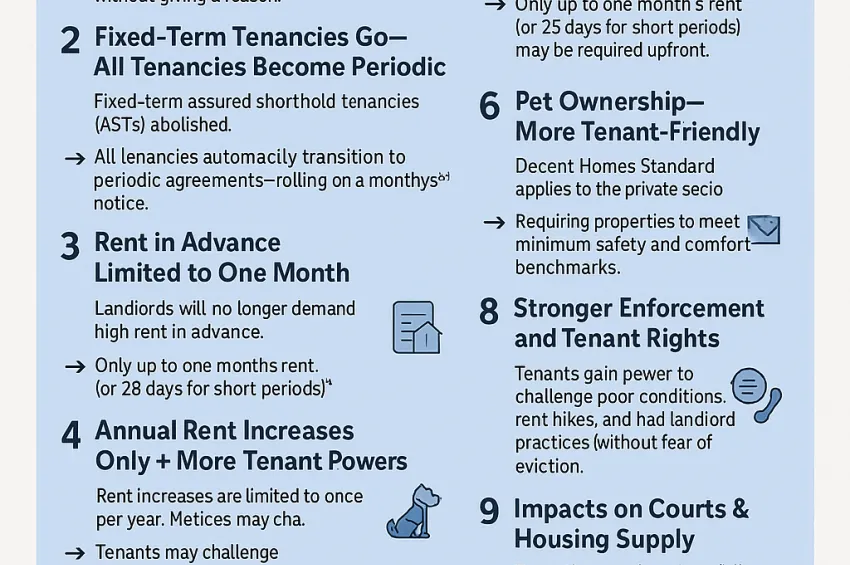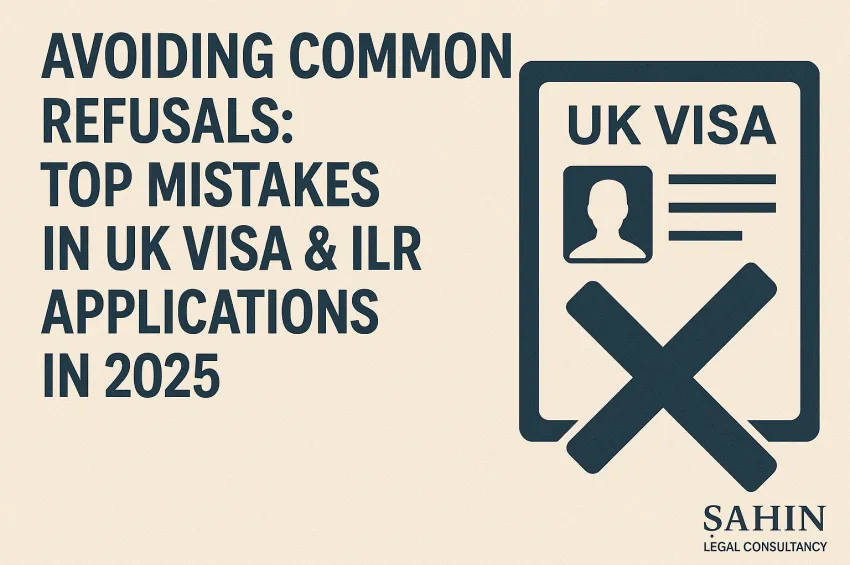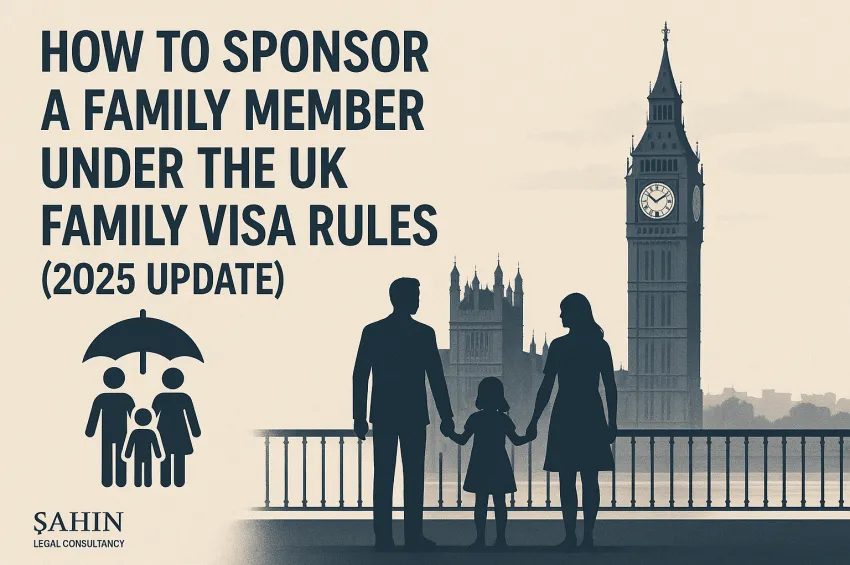
The UK’s Renters’ Rights Bill is set to deliver the most sweeping reforms to the private rental sector since 1988. It aims to strengthen tenant protections and introduce a fairer, more transparent system. Here’s what you need to know—and how it might impact you.
1. Goodbye “No-Fault” Evictions: Section 21 Is Abolished
-
The Bill ends Section 21 evictions, meaning landlords can no longer evict tenants without giving a reason.
Tenancy terminations will now require valid legal grounds under Section 8 of the Housing Act.
2. Fixed-Term Tenancies Go—All Tenancies Become Periodic
-
Fixed-term assured shorthold tenancies (ASTs) are abolished.
Instead, all tenancies automatically transition to periodic agreements—rolling on a monthly basis. Tenants can leave by giving two months’ notice.
3. Rent in Advance Limited to One Month
-
Landlords will no longer demand high rent in advance.
Once the Bill takes effect, only up to one month’s rent (or 28 days for short periods) may be required upfront.
4. Bidding Wars Out—Rent Must Be Clear
-
Auctions and bidding above the advertised rent will be banned.
Landlords and agents must publish a fixed asking rent and cannot solicit higher offers.
5. Annual Rent Increases Only + More Tenant Powers
-
Rent can only be increased once per year. Notices must be in writing using Section 13, and tenants may challenge the increase via tribunal.
6. Pet Ownership—More Tenant-Friendly
-
Tenants may request to keep pets, and blanket bans are not permitted.
Landlords must provide a reasonable refusal or may ask for pet insurance.
7. Decent Homes Standard & Ombudsman
-
The Bill introduces the Decent Homes Standard to the private sector—requiring properties to meet minimum safety and comfort benchmarks.
-
A new Private Rented Sector Ombudsman and a PRS Database will provide accountability and transparency.
8. Stronger Enforcement and Tenant Rights
-
Tenants gain power to challenge poor conditions, rent hikes, and bad landlord practices—without fear of eviction.
-
Local authorities will have enhanced enforcement powers and landlords may face fines up to £7,000 for non-compliance.
9. Impacts on Courts & Housing Supply
-
Legal experts warn that the new eviction and rent challenge processes could overwhelm already strained courts, potentially causing delays.
-
There are concerns this may discourage landlords and reduce available rental properties.
When Will the Bill Take Effect?
-
The Bill is advancing through Parliament and has completed key readings.
-
Royal Assent is expected by late 2025, with new rules coming into effect from early 2026, likely all at once.
Summary Table: What’s Changing?
| Change | Details |
|---|---|
| Section 21 evictions | Banned — landlords must use Section 8 with valid grounds |
| Tenancy type | All fixed-term ASTs become periodic tenancies |
| Rent in advance | Capped at one month (28 days for shorter periods) |
| Rent bidding | Prohibited—must rent at advertised price |
| Rent increases | Limited to once per year via Section 13 |
| Pets | Allowed unless landlord provides reasonable rationale |
| Property standards | Decent Homes Standard applies in private sector |
| Complaints | Handled via new PRS Ombudsman |
| Enforcement | Stronger powers and heavier penalties for non-compliance |
| Timeline | Royal Assent late 2025; changes effective early 2026 |
If you’re a landlord, tenant, or agent wondering how to navigate these sweeping reforms or ready to update your practices, we’re here to help.















